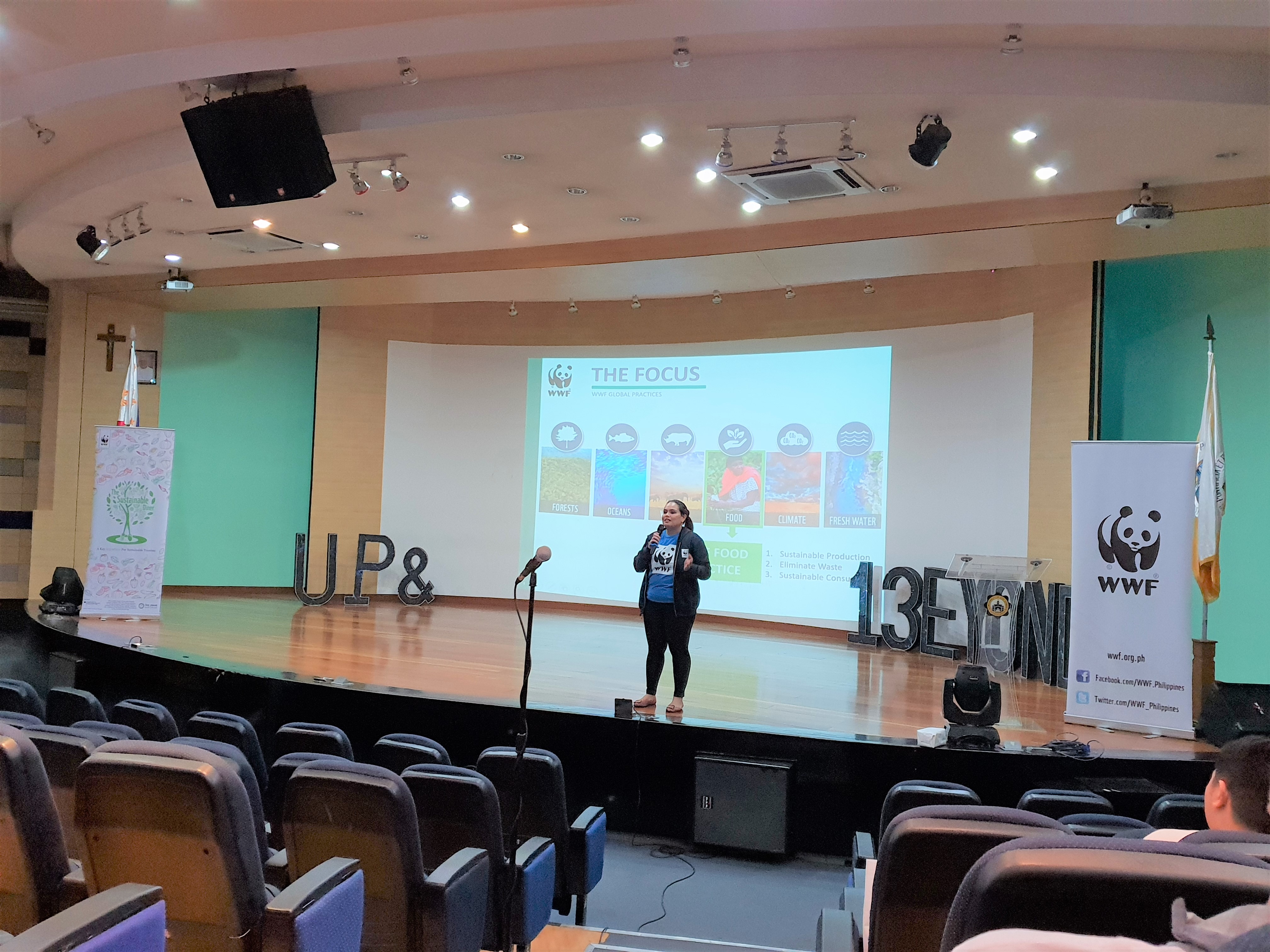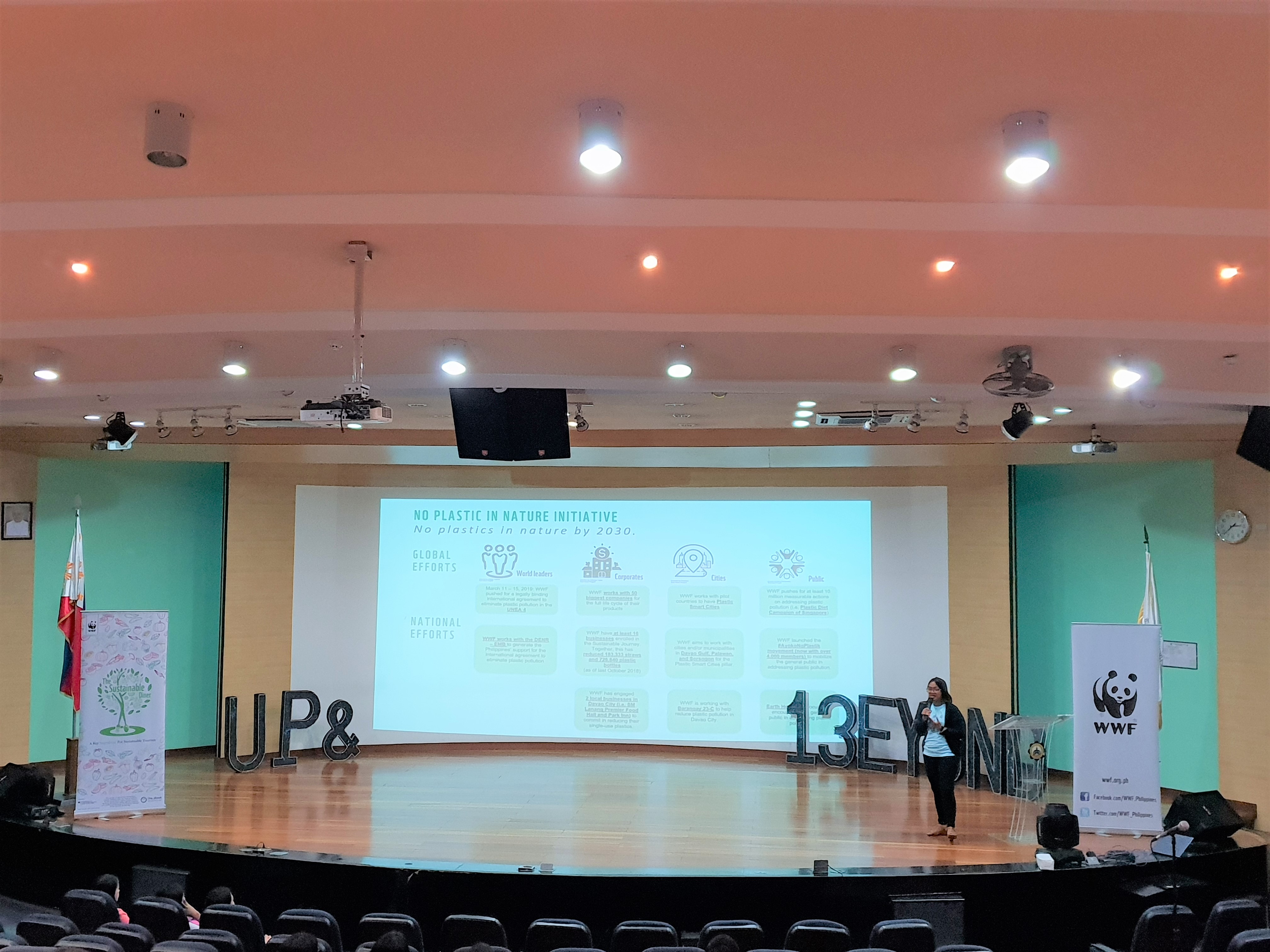The Sustainable Diner at Breakthroughs: 1st Tourism and Hospitality Management Congress
April 2019

Melody Melo-Rijk, WWF’s Project Manager for Sustainable Consumption and Production in the Philippines, shares how sustainable dining contributes to the global goals of WWF’s Food Practice. Photo © Alexa Jeanne Lasch / WWF-Philippines
Last April 4, 2019, representatives from two projects of the World Wide Fund for Nature (WWF) Philippines - The Sustainable Diner: A Key Ingredient for Sustainable Tourism and #AyokoNgPlastik - were invited to speak in front of university students and faculty members at Breakthroughs: 1st Tourism and Hospitality Management Congress, held at the Benavides Auditorium of the University of Santo Tomas. As part of the 13th year celebration of the UST College of Tourism and Hospitality Management, the event featured major industry breakthroughs and technological advancements, envisioned an industry future where digitalization and sustainable development take center stage, and engaged a more socially responsive community of future industry players and stakeholders.
Melody Melo-Rijk, WWF’s Project Manager for Sustainable Consumption and Production in the Philippines, shared her experiences and knowledge in a session called “Sustain our AbEATlity: Sustainable Diner as a key for the success of Responsible Tourism,” where she introduced the organization and its global objectives when it comes to food and other related industries such as tourism and hospitality. Transforming the global food system means increasing people’s awareness on where food comes from as well as changing behaviors when it comes to how people eat, and in the Philippines, a bulk of this activity happens whenever Filipinos travel. Melo-Rijk emphasized how food service is a huge chunk of local tourism, and that practicing sustainable dining would lead to a more sustainable tourism framework for the country.

Czarina Constantino, WWF-Philippines’ National Coordinator for Plastics, presents WWF’s “No Plastics in Nature” initiative, an ambitious global movement aiming for zero plastics in nature by 2030. Photo © Alexa Jeanne Lasch / WWF-Philippines
Meanwhile, Czarina Constantino, WWF-Philippines’ National Coordinator for Plastics, talked about the organization’s “No Plastics in Nature” initiative in a session called “#AyokoNgPlastik: The adverse effects of single-use plastics and its impacts to the tourism and hospitality industry”. She shared how, as a network, WWF envisions a future where no materials are thrown away but are always recaptured and used for another purpose instead of ending up in landfills or our precious ecosystems. Translating this objective into efforts for the #AyokoNgPlastik local campaign, she encouraged the students to practice the 4Rs - Refuse, Reduce, Reuse, and Recycle - in their daily lives and in their future tourism and hospitality careers.
The Sustainable Diner project would like to thank the UST College of Tourism and Hospitality Management Student Council for inviting the project to share its advocacy on sustainable dining and how it contributes to sustainable tourism in the Philippines. We wish the students well in their future endeavors, and hopefully, they become the next generation of advocates for sustainable dining!
The Sustainable Diner project, under WWF-Philippines’ Sustainable Consumption and Production, is part of the International Climate Initiative (IKI). The Federal Ministry for the Environment, Nature Conservation, and Nuclear Safety (BMU) supports this initiative on the basis of a decision adopted by the German Bundestag.
